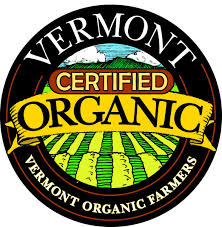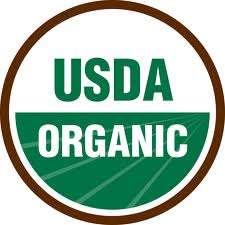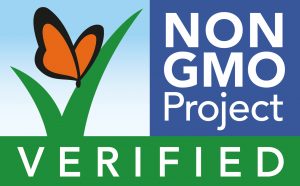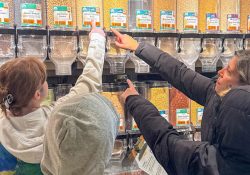
DARK Days for Consumers’ Right To Know
Vermont’s Groundbreaking GMO Labeling Law
July was a roller coaster for consumers seeking transparency in food labeling, particularly when it comes to labeling foods containing genetically modified organisms (GMOs). The month began on a glorious high note with a party on the statehouse lawn to celebrate the implementation of Vermont’s groundbreaking GMO labeling law, known as Act 120. Fundamentally, this law required two things:
- Mandatory labeling of food for retail sale if produced with GE (genetic engineering)
- Disallows use of the label “natural” for food made with GE ingredients
Eight categories of foods were exempt from this labeling requirement, notably, products produced entirely from animals (e.g. meat, milk, eggs), products with only trace amounts of GE ingredients, alcoholic beverages and unpackaged food prepared for immediate consumption.
Under this new law, food product manufacturers were responsible for labeling packaged products containing GE ingredients. As a retailer, our Co-op was responsible for labeling any GE products that we package.
The law dictated that there will be three types of labels, which must be easily found on the outside of the package:
- “Produced with genetic engineering”
- “Partially produced with genetic engineering” if less than 75% by weight
- “May be produced with genetic engineering”
The State’s Attorney General was responsible for enforcement of the law. There was a “safe harbor” period until January 1, 2017, where the law would be in effect but no fines would be issued. After that, the fine for a violation was $1000 per product SKU, per day.
A Short-Lived Celebration
We heartily celebrated the implementation of this new law. It represented a significant victory for transparency in food labeling and consumers’ right to know what is in the food they feed themselves and their families. An overwhelming majority of consumers in Vermont and across the US have long been rallying for clear, simple, on-package labeling so that they could know at a glance if a product was produced with genetic engineering. We became the first state to make it happen in May of 2014, then put up an admirable fight to defend our law when a collection of trade associations representing giant food producers, known collectively as the Grocery Manufacturer’s Association, filed suit against the state of Vermont. In April of 2015, Judge Christina Reiss rejected a motion from the industrial food companies asking Vermont to stop implementation of our labeling law. Judge Reiss also determined that the labeling law is constitutional under the First Amendment. The court’s findings affirmed the solid legal ground of Act 120.
The July 1st roll-out went smoothly. We prepared for the changes in advance and mailed letters to all of our vendors to share information and offer resources about this transition to prevent any potential snags. Our law was also having positive effects beyond Vermont’s borders, as many large food manufacturers – Campbell’s, PepsiCo, Kellogg’s, ConAgra, Mars, & General Mills – began opting to label all of their products, rather than label only those destined for Vermont store shelves. The sky did not fall and consumers were finally being given the information needed to make informed decisions about their food purchases. It all seemed too good to be true…perhaps because it was.
What is the DARK Act?
On June 23rd, Senators Pat Roberts (R-KS) and Debbie Stabenow (D-MI) proposed a compromise GMO labeling bill (S.764) nicknamed the DARK (Denying Americans the Right to Know) Act. Vermont’s leaders fought hard to defeat the DARK Act as it moved through the House and Senate. The clip below shows Senator Bernie Sanders addressing his peers on the Senate floor and trying to point out everything that is wrong with this bill in the short time allotted. You can also hear the voice of Senator Patrick Leahy asking Bernie questions along the way, allowing for clarification of specific points.
Despite their best efforts, the proposal passed both the senate (July 7th) and the house (July 14th). It was delivered to the White House on July 19th and was signed into law shortly thereafter.
In a nutshell, the passing of this law dissolves Vermont’s labeling law and falls well short of consumer expectations. This law will leave a significant number of GE products unlabeled due to a definition of “bioengineered food” that even the FDA has called into question, which would ultimately exclude some sugars, oils, and corn products . Companies will also be able to opt out of clear accessible on-package labeling by using digital “QR” codes that will be unreadable by approximately half of rural and low-income Americans without access to smartphones or cell service. There are no penalties for lack of compliance, and no authority to recall products that are not properly labeled. Additionally, this law preempts a 2004 Vermont statute requiring companies to label genetically engineered seeds.
“It’s a shame that Congress chose to replace our standard with a weaker one that provides multiple ways for the food industry to avoid transparent labeling,” Representative Peter Welch said. Reverend Jesse Jackson also denounced the legislation and urged President Obama to veto the GMO labeling bill, pointing out the discriminatory nature of such a labeling system; “100,000,000 Americans, most of them poor, people of color and elderly either do not own a smartphone or an iPhone to scan the QR code or live in an area of poor internet connectivity. The DARK act has also been condemned by many respected environmental and food justice advocacy groups including the Center for Food Safety, Rural Vermont, VT Right To Know GMOs, and the Environmental Working Group.
We’re deeply disappointed to see Vermont’s strong labeling law replaced by the DARK Act, but we also recognize that despite this heartbreaking news, we should all be incredibly proud of what we accomplished over the past few years. Today, if you go into grocery stores in Vermont and across the nation you will find genetically engineered foods labeled for the first time – Vermont was a driving force in making that happen. National food manufacturers like Campbell’s and Mars have announced that they will continue to label their products, and others are expected to follow suit. In the end, a lot more people know what is in their food because of what we managed to accomplish here in Vermont.
We’d like to acknowledge and appreciate the many consumers, farmers, political leaders, and industry groups who are working hard to make transparency in food labeling a reality. The fight for meaningful and clear food labels will continue. In the meantime, if you wish to avoid GMOs while shopping in the Co-op, look for the following:
- Products bearing a certified organic label (see examples below)
- Products bearing the third-party certification of the Non-GMO project (see below)
- Ask questions about where food comes from and how it is made. Perhaps the product has been imported from one of the 60-plus countries around the world that have banned GMOs. Or, perhaps it’s a local product from a very small farmer or producer that may not bear an organic or non-GMO label, but can assure you that their products are grown or produced without the use of GMOs.






